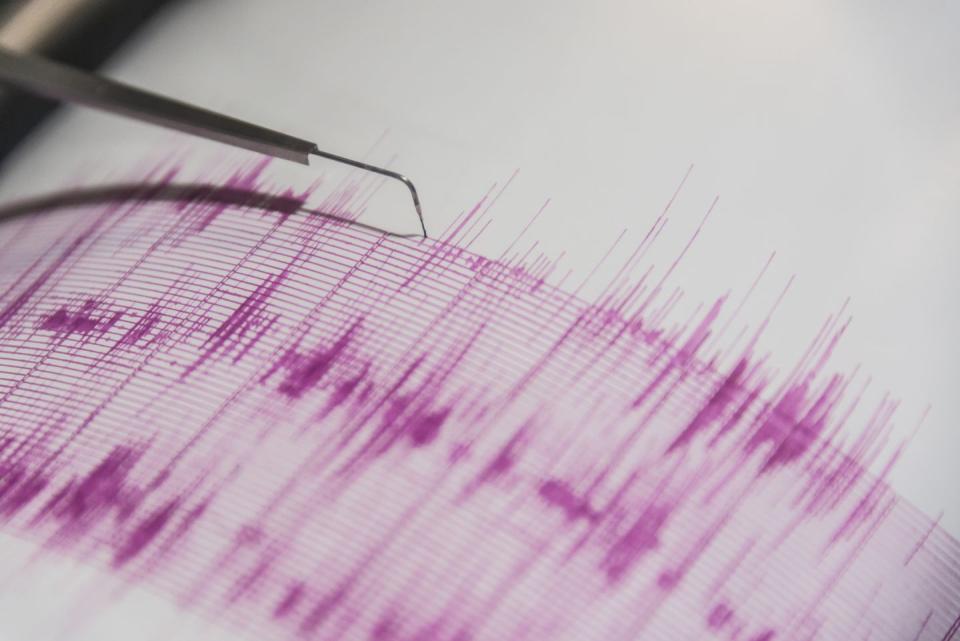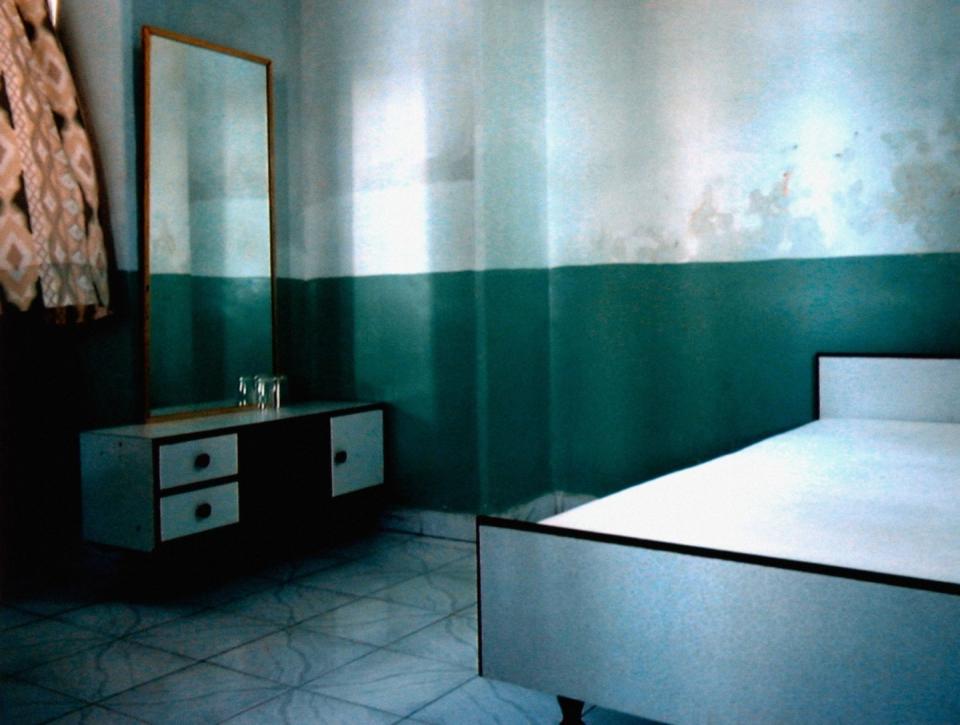The new law on domestic abuse gives you the right to check your partner's past

With so much talk of Brexit and, well, more Brexit, it’s hard to imagine that the government is working on anything other than trying to navigate our way out of the EU as painlessly as possible. And it turns out they have been – albeit quite slowly. While Brexit talks have been going on, one of the other things the government has been working on is crafting a new bill on domestic abuse.
The existing law surrounding domestic abuse is flawed. The sheer number of incidences that occur every year tell us that: 2 million adults in England and Wales were known by police to have experienced domestic abuse in 2017 (and then there’s all the ones who don't report their situations to the authorities). Women’s Aid’s recent census on femicide revealed that 59% of all women murdered in 2017 were killed inside their own homes, and the charity’s most recent statistics indicate that an estimated 21,084 of referrals to refuges in England were declined in the year 2017/18, averaging over 400 rejections each week.
"This is not good enough," states Women’s Aid’s Chief Executive, Katie Ghose.

It’s clear just how vital it is that the law surrounding domestic abuse is fit for purpose in dealing with these awful situations – and preventing them from happening in the first place. Which is why, following a consultation with people who have experienced domestic abuse themselves (as well as those who work closely with survivors), the government today announced the draft version of the new Domestic Abuse (DA) Bill.
The draft bill will now be debated by MPs in the House of Commons, and also by the House of Lords, at which point - if there are no objections - it will officially become law.
MP Victoria Atkins, who’s also the Minister for Crime, Safeguarding and Vulnerability and leads the charge with the bill, talked us through some of its key proposals so we know exactly what the new law intends to do, and how it will hopefully change things for the better:
Survivors of domestic abuse can no longer be cross-examined by their abuser in court
You might have had to re-read that heading a couple of times to make sure you properly understood it, because it sounds quite frankly ludicrous. But no, you read it right. As things currently stand, it’s entirely possible for survivors of domestic abuse to be interrogated in a family court by the very person who has been subjecting them to abuse.
This eventuality, labelled an "abhorrent practice" by Women’s Aid, can arise when a perpetrator doesn’t have legal representation (which is increasingly common thanks to legal aid cuts). Because the justice system requires both sides of a case to have their say, if a perpetrator self-represents they can end up assuming the position of lawyer - resulting in a cross-examination of their former partner. This, MP Victoria Atkins points out, can be used by perpetrators "as another form of abuse. [It’s] another way of exerting control and fear over their ex-partners".
As part of a Women’s Aid report into this kind of practice, one woman who had experienced cross-examination from an abusive partner labelled it "the worst thing I’ve ever had to do in my life".
"The questions were about my sex life, and previous boyfriends, and who was going in my house," she recalled.
The new DA bill will make it impossible for cross-examination to be conducted by abusers, mirroring the system that’s already in place in the criminal court system for sex offences. If a perpetrator does not have legal representation, Atkins tells Cosmopolitan UK, "the court will appoint a barrister to represent the defendant to conduct that examination fairly and properly."
A new right will be given to check your partner's past for domestic abuse
In 2009, 36-year-old Clare Wood was killed by her partner, George Appleton. Following her death, Clare's family was shocked to discover that he had a history of violence against women - but Clare had known nothing about it. As a result, they campaigned for 'Clare's Law' - more formally known as the Domestic Violence Disclosure Scheme - which was introduced as a guideline for police forces back in 2014.
The scheme offered people the chance to check with police whether their partner, or a partner of someone they know, had a criminal record of violence. However, it has always been at the individual police force's discretion whether they release this information or not. The new draft DA bill places Clare's Law onto statutory footing, meaning everyone will have a legal right to check out the offending history of a potential partner when it comes to domestic abuse.
Of course, this isn't a catch-all approach; we know many women never report incidences of domestic abuse to the police, which means their perpetrators get away without being convicted. Under Clare's Law, police can only share whether an individual has any previous convictions of domestic abuse, so there will be many serially-offending abusers who have no record whatsoever. But this disclosure scheme is still incredibly useful, and will no doubt prevent many potential victims of abuse from coming to any serious physical or emotional harm.
Lie detector tests will be used on high risk domestic abuse offenders
Before you start imagining the UK’s legal justice system is turning into an episode of Jeremy Kyle (although that might not be the worst thing in the world - Jeremy knows how to get shit done), there is method to this apparent madness.
Polygraph tests will never be used as evidence of guilt during a domestic abuse trial for initial prosecution. Instead, the idea is to pilot a scheme where existing offenders of domestic abuse - deemed high risk for reoffending - would be subjected to polygraph tests once they are released from prison.

Perpetrators would be asked questions about their intentions to reoffend, and extra precautionary measures could be put in place to monitor those found via the lie detector test to be highly likely to abuse again in future. Such measures might include formal warnings by police or increased supervision, ideally reducing the chance of another person having to suffer abuse at the hands of a known previous offender.
The concept is based off the back of research carried out on a very similar scheme for sex offenders, which found that "polygraph testing has increased the chances that a sexual offender under supervision in the community will reveal information relevant to their management, supervision, treatment, or risk assessment."
Victoria Atkins hopes lie detector tests might help to "break the cycle of violence with perpetrators", but in the instance the pilot scheme doesn’t appear to be having much effect, she tells us the government would be prepared to scrap it and spend the money "better in other ways".
‘Economic abuse’ will become a recognised form of abuse in its own right
As part of the new Domestic Abuse bill, the government will redefine exactly what abuse is.
"Twenty years ago, when people talked about domestic abuse, they probably used the phrase domestic violence, and thought of a single incident of physical violence," explains the Minister. Nowadays, we recognise that abuse can manifest in multiple ways – and it doesn’t have to involve violence to be damaging to those who experience it.
A few years back, the government formally recognised 'coercive control' – emotional abuse resulting from controlling behaviour – as a criminal offence. This time around, they’ve chosen to specify another distinct form of abuse which they’ve termed 'economic abuse'.

"[Economic abuse may] include control of money, giving her a food allowance of a few pounds a week to feed herself, or [taking] control of her bank accounts," explains the Minister. "But it can also include things like hiding her car keys so that she can’t get to work in time in the morning, or controlling her use of her mobile phone in terms of who she can contact, thereby decreasing her circle of friends and people that she can reach out to," she adds.
"We want people to understand [that abuse is] not restricted to physical violence – horrendous though that can be – it can also be horrendous mental and emotional abuse as well."
More money will be spent on resources for LGBTQ and disabled victims of domestic abuse
As well as changing the law on domestic abuse bill, the government has also today announced that it commits to investing more money in resources to tackle domestic abuse. Specifically, a focus will be put on services for disabled, elderly, male and LGBTQ victims of domestic abuse, who often require additional specialised support aside from the standard resources available.
"What we’re trying to do is support particular groups of people who we know sadly fall victims of domestic abuse, but for whom the broader measures may not help address every aspect of their very important and complex needs," Victoria Atkins tells us.

The government is allocating £8 million to this area, which will be spent on supporting existing organisations that work to serve domestic abuse survivors in a variety of ways. One such charity is Employers Initiative on Domestic Abuse, which trains up major employers to spot the signs of abuse within their workforce, and guides them on how best to offer practical steps of support to staff members living with abusive partners.
£474,000 has been allocated for LGBTQ survivors of abuse, while a similar sum has been put aside for women on spousal visas who rely on abusive partners to remain in the country. £500,000 has been set aside for male sufferers. "Of the 2 million victims of domestic abuse last year, approximately 1.3 million were female, and about 695,000 were male. We’re not for a moment forgetting that men can be victims of domestic abuse as well," notes Victoria Atkins.
The MP also tells Cosmopolitan UK that the government will be rolling out training for "front-line workers" such as GPs, housing officers, and social workers to spot the signs of abuse as it’s occurring, enabling them to reach out and support survivors who may require it.
What are the flaws with the new bill?
The draft bill is undoubtedly a positive step in the right direction for supporting domestic abuse survivors, but there’s one thing it can’t do – and that’s financially support the refuges providing life-saving havens for victims who need to flee.
The current funding for refuges is not adequate. Council funding for women's refuges was cut by nearly £7m since 2010, according to a 2018 Guardian report, and new figures from Women’s Aid distressingly reveal that an estimated 21,084 referrals to refuges in England alone were denied in 2017/18. That means literally thousands of women are being denied the safe space they require to escape abusive relationships, because there just aren’t the beds available.

As Minister Victoria Atkins points out, another government department – the Ministry of Housing, Communities and Local Government – is responsible for allocating funds to local authorities who in turn decide on budgets for refuge services. It’s not something that would naturally fall under the provisions of the Domestic Abuse bill.
But could it not have been included in the governmental list of commitments that sit alongside the new laws?
"The government must deliver the resources needed as well as legislation to make a real difference to survivors' lives," Women's Aid's Katie Ghose said in response to the draft bill’s release.
From where Victoria Atkins is standing, in her position as Minister for Crime, Safeguarding and Vulnerability, she recognises that "refuges are an absolutely critical part of our response to domestic abuse because women need a place to flee in moments of crisis".
But – and there’s a big but – she insists we must take an alternative (and arguably idealistic) approach to solving the problem of domestic abuse. "I want us to stop asking 'when will she leave him?' and ask instead, 'when will he stop?'," she tells Cosmopolitan UK.
"I want us to turn our thinking around as a country that it must be her that leaves her home… We want her to stay in her home, [her] children to stay at school, her to have her GP and all that she’s set up around herself - and for him to leave."
Atkins is right. This is the ideal. But we all know that an ideal world does not materialise overnight, and in the meantime, women still need to flee. They need a retreat far away from the threat of violence and control and manipulation. For their sanity, and for their safety.
As part of the DA bill when it's passed, the Minister will be appointing a Domestic Abuse Commissioner, who "will be able to review services across the country" to ensure adequate resources country-wide.
"We know that some areas are brilliant at providing bed spaces, other areas frankly are not. And so I see [the Commissioner’s] role as drawing everyone up to account and saying, 'Why are you not doing as well as your neighbouring local authority in terms of providing for victims?'"
Let’s just hope this works in practice, and that having a Commissioner whose sole focus will be on the preservation of services to support survivors of domestic abuse might mean the issue of funding for refuges makes its way higher up the agenda. Because until then, people will continue to suffer.
For more information and support, visit Women's Aid's website or call the Freephone 24-hour National Domestic Violence Helpline, run by Women’s Aid in partnership with Refuge, on 0808 2000 247.
Follow Cat on Twitter.
You Might Also Like
